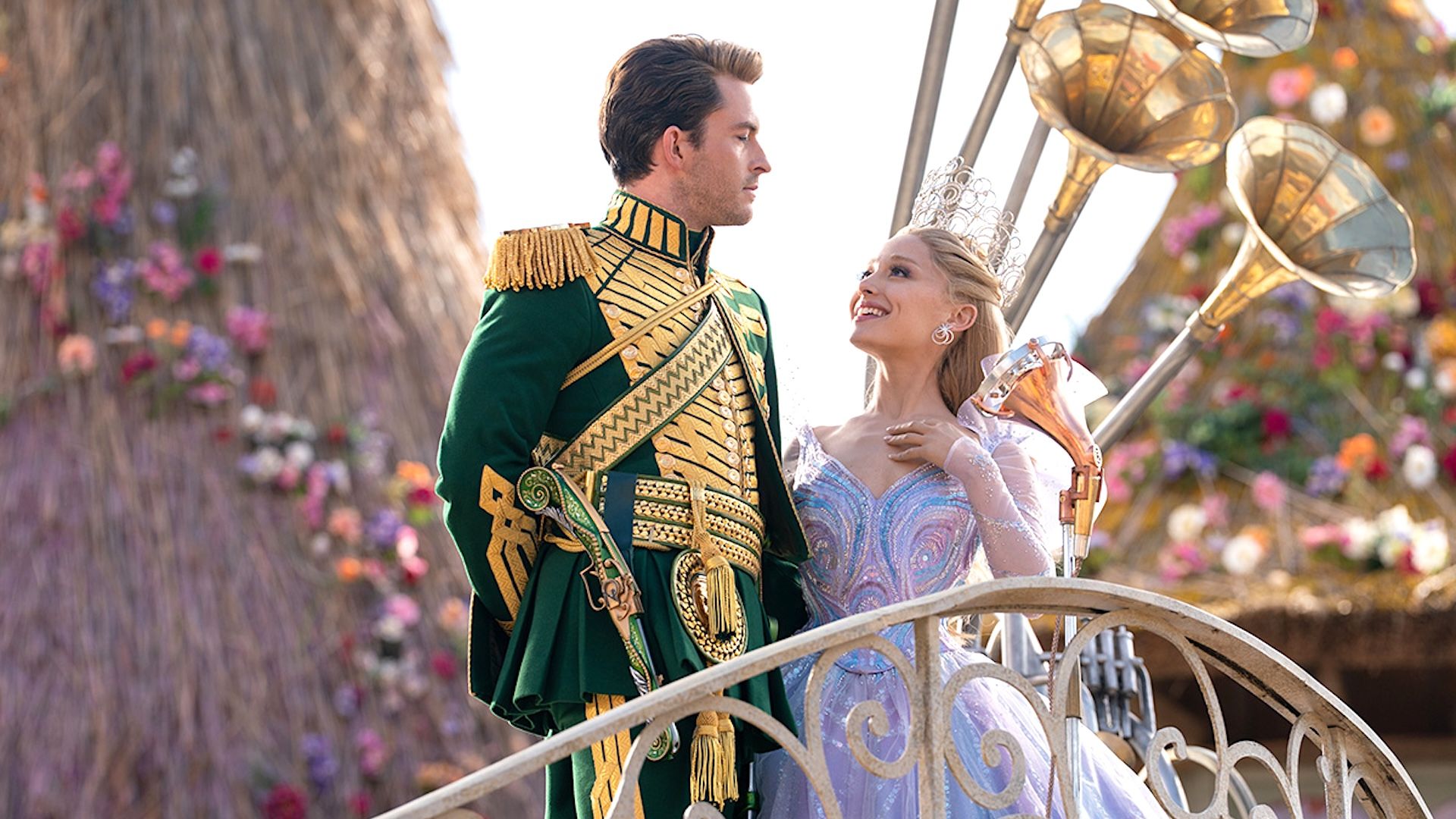
The new movie Wicked: For Good is currently receiving very positive reviews from audiences, just like the first film. This success is likely due to some key changes made when adapting the popular Broadway musical for the big screen. The story follows Elphaba (Cynthia Erivo) and Glinda (Ariana Grande), two very different students at Shiz University who start out disliking each other but eventually form a strong connection. The movie had a record-breaking opening weekend, earning $150 million in the US and $226 million worldwide – making it the biggest opening ever for a film based on a Broadway show.
As a huge fan, I think Jon M. Chu really nailed telling Elphaba and Glinda’s story over two movies. It gave both of them so much more room to develop as characters – something the stage show just couldn’t quite do. Both Part One and For Good are stunning to watch and listen to, and honestly, they’ve connected with audiences on a really deep level, even if critics haven’t always loved them. I was a little worried about how they’d adapt the second half of Wicked, but the screenwriters, Winnie Holzman and Dana Fox, made some fantastic changes that actually made For Good even better than I think it would have been otherwise!
Madame Morrible’s Diminished Vocal Part

Universal Pictures
Madame Morrible, a role first played by Carole Shelley when the musical Wicked debuted on Broadway in 2003, sings slightly more in the second act than the first. She appears in the opening number of Act II, “Thank Goodness,” where she falsely portrays Elphaba as evil and presents Glinda as “Glinda the Good.” The song “For Good” is divided into two parts – “Every Day More Wicked” and another version of “Thank Goodness” – and Madame Morrible participates in both, though her singing differs between them.
In the movie “Every Day More Wicked,” Michelle Yeoh, who doesn’t typically sing, performs a line usually sung by the ensemble in “Wicked”: “Like some terrible green blizzard, throughout the land she flies / Defaming our poor Wizard with her calumnies and lies.” Fans of the musical will notice she sings it a bit lower than usual, likely to make it easier for her. Later, in “Thank Goodness,” Morrible appears briefly, singing a short part and also speaking some lines. While her lies about Elphaba aren’t sung as they are in the stage show, she still stirs up the people of Oz, who then spread rumors about Elphaba. By giving Yeoh a smaller role vocally, the film allows the stronger singers to shine while still including her in the musical numbers.
Elphaba Tries to Stop the Fleeing Animals
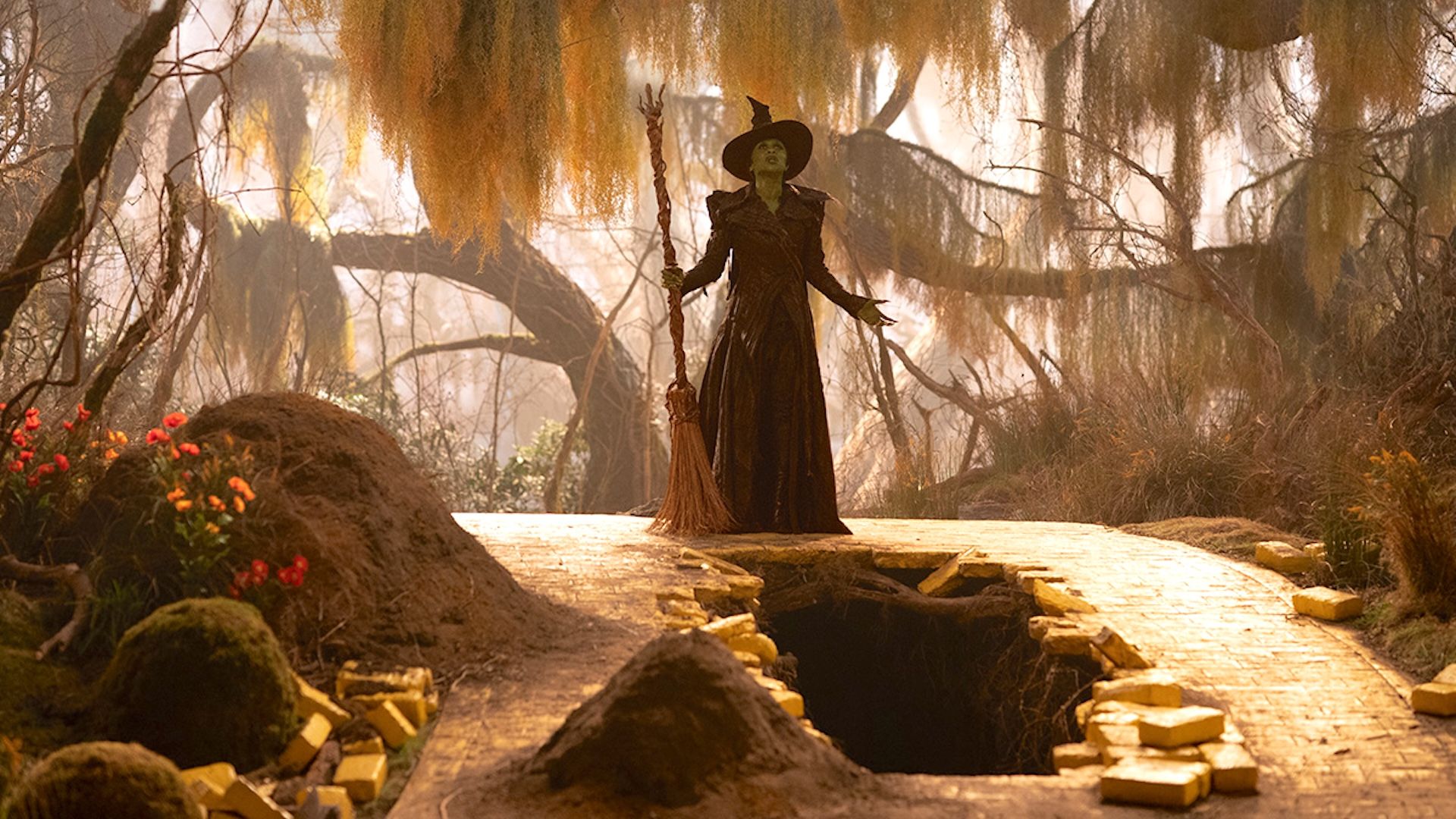
Universal Pictures
I’ve always felt that while some people question the new songs in For Good, one scene really stands out to me. It’s not actually in the stage version, but it’s powerful: Elphaba tries to prevent animals from escaping Oz through a tunnel under the Yellow Brick Road. It’s a stark reminder of how badly these animals are being treated, and it really highlights why Elphaba is doing what she’s doing – she desperately wants them to be free. The Wizard and Madame Morrible are the ones forcing them to run away, and seeing Elphaba plead with them makes her mission so much more impactful. Honestly, even though a new song is nice, this moment – and seeing Dulcibear, her old nurse, there – really brings everything full circle and reminds you of who Elphaba is at her core.
This scene also features an adult Cowardly Lion who discourages the other animals from trusting Elphaba, creating further obstacles for her. Meanwhile, Chistery and the winged monkeys, hidden in the trees, hear Elphaba explain she never intended to hurt them when she used the spell that gave them wings. This is a crucial moment that highlights Elphaba’s love for animals and her desire to help them. While the new song wasn’t necessary, removing this scene could have left viewers unfamiliar with the first film’s animal storyline confused.
Glinda Gets a Flashback
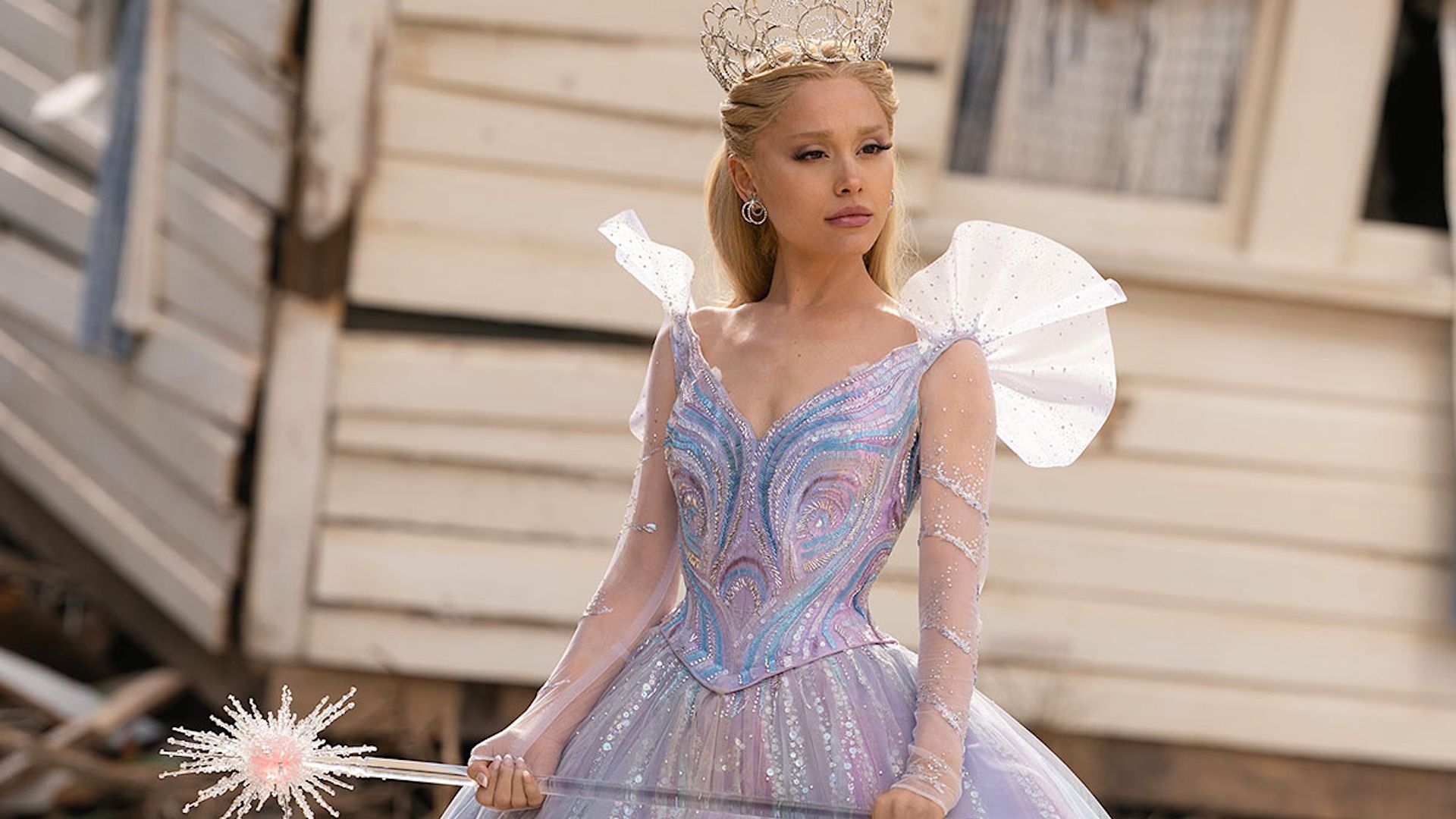
Universal Pictures
Similar to Elphaba’s backstory revealed earlier, Glinda has a flashback in the song “For Good” that reveals a key part of her character: she’s always wished she had magical powers, and not having them has deeply affected how she sees herself. We also learn that Glinda’s mother taught her that being popular was more important than having her own strength. This led Glinda to believe that being loved and admired was the most important thing in life. Throughout both Wicked movies, she works to overcome this belief, and while this theme exists in the stage show, this scene adds more emotional depth to her journey as she eventually accepts that she may never achieve her dream.
Boq’s Travel Restriction Makes ‘For Good’ Even More Political
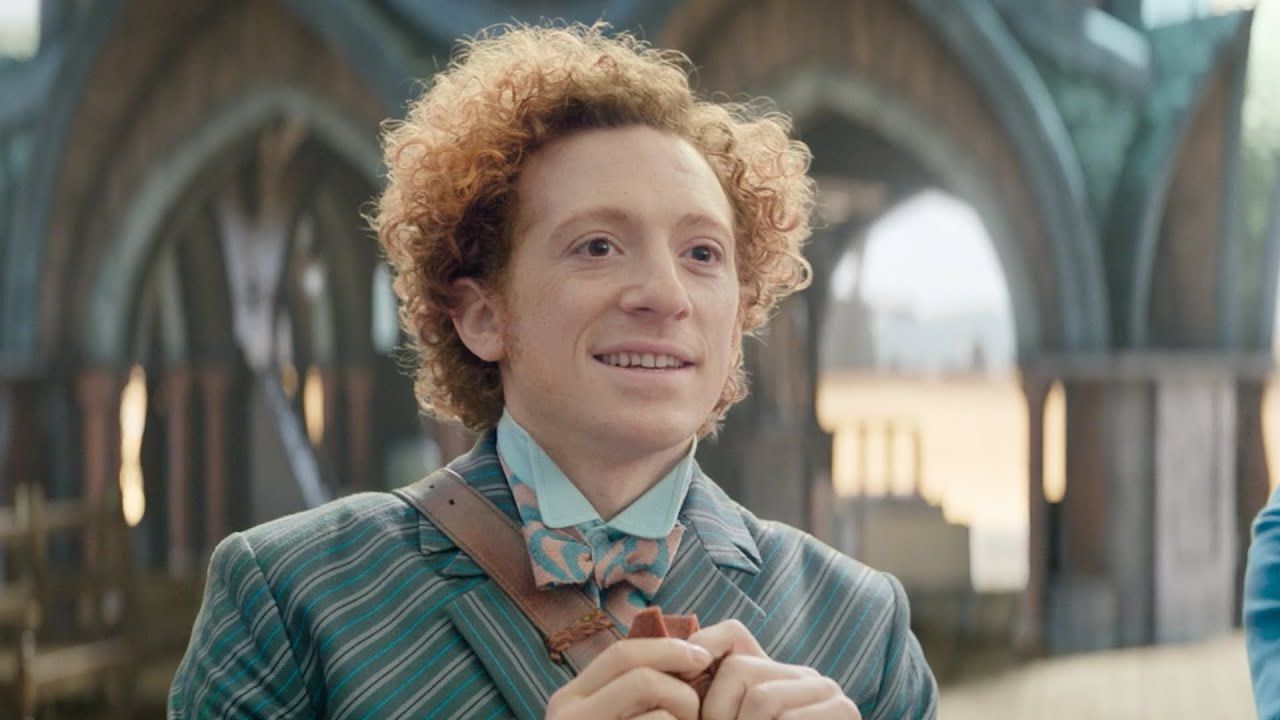
The musical Wicked has always hinted at political themes, and the recent film For Good really emphasizes them. In the original story, after her father dies, Nessarose becomes the ruler of Munchkinland and quickly becomes a controlling tyrant, essentially trapping Boq to keep him from leaving her. In the film, Boq sees an announcement about Glinda and Fiyero’s wedding and decides to finally tell Glinda how he feels before it’s too late. But when he tries to leave, he discovers that Nessarose has enacted a new travel restriction: both animals and Munchkins now need permits to travel. This feels particularly pointed, given the increased immigration restrictions happening in the United States in 2025. For Boq, this moment confirms he’s trapped, and for the audience, it highlights the struggles faced by people who are seen as outsiders by those in power.
Nessa Flies Instead of Walking
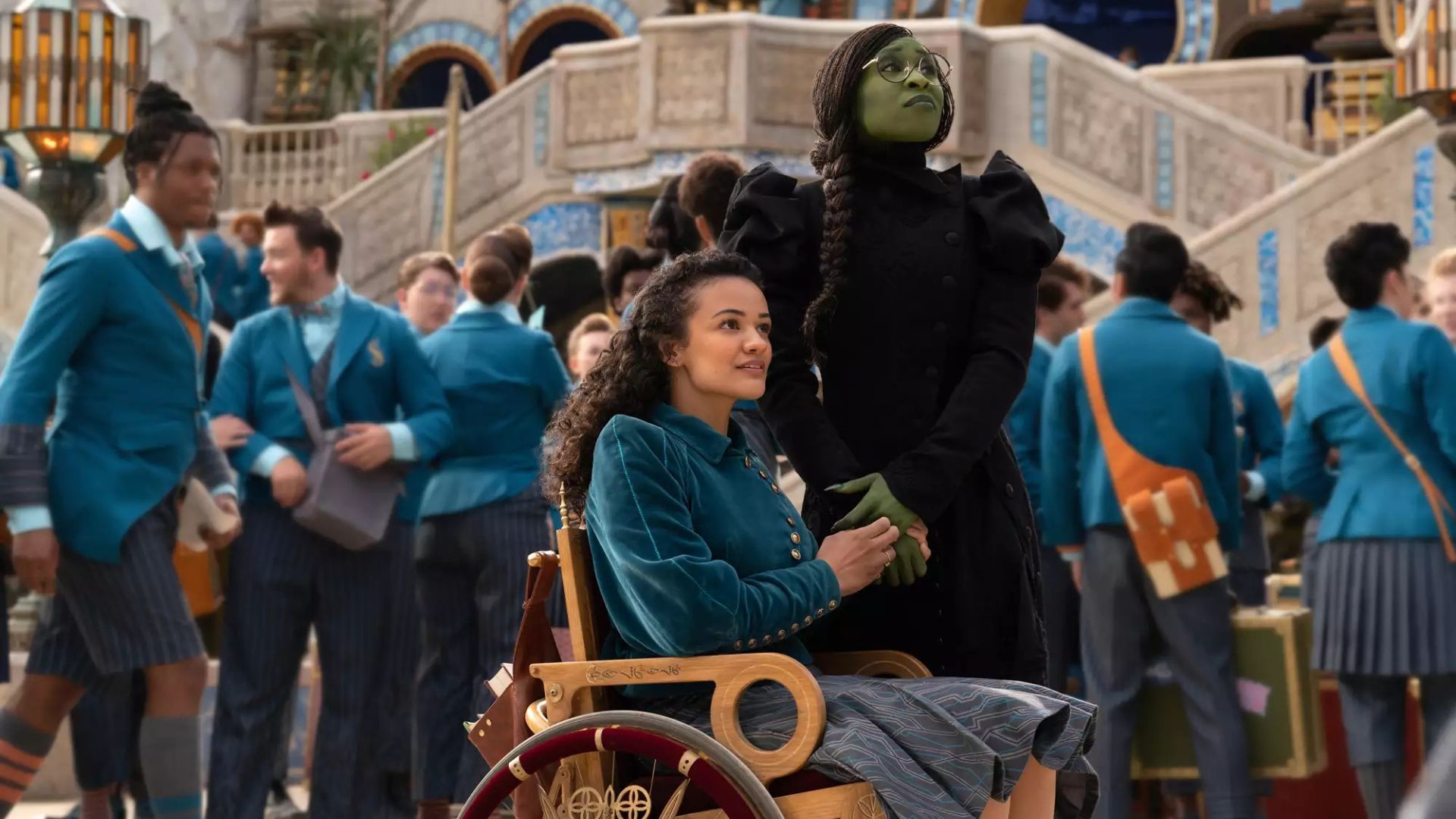
Giles Keyte/Universal Pictures
During the second act of Wicked, Nessarose asks Elphaba to help her keep Boq from leaving. She longs to be able to walk, so Elphaba magically enchants her silver shoes to make it possible. However, the movie For Good handles this differently, taking into account that the actress playing Nessa, Marissa Bode, uses a wheelchair in real life. Instead of walking, Nessa flies – similar to how Elphaba flew at the end of the first movie. This was a smart choice, creating a visually stunning moment and reinforcing the Wizard’s message (repeated in the song “Defying Gravity”): everyone deserves the chance to fly. This allows Nessa a joyful moment and a more inclusive story, especially as her circumstances become more difficult.
Glinda and Fiyero’s Wedding is Ruined, and That’s Not Even the Worst Part
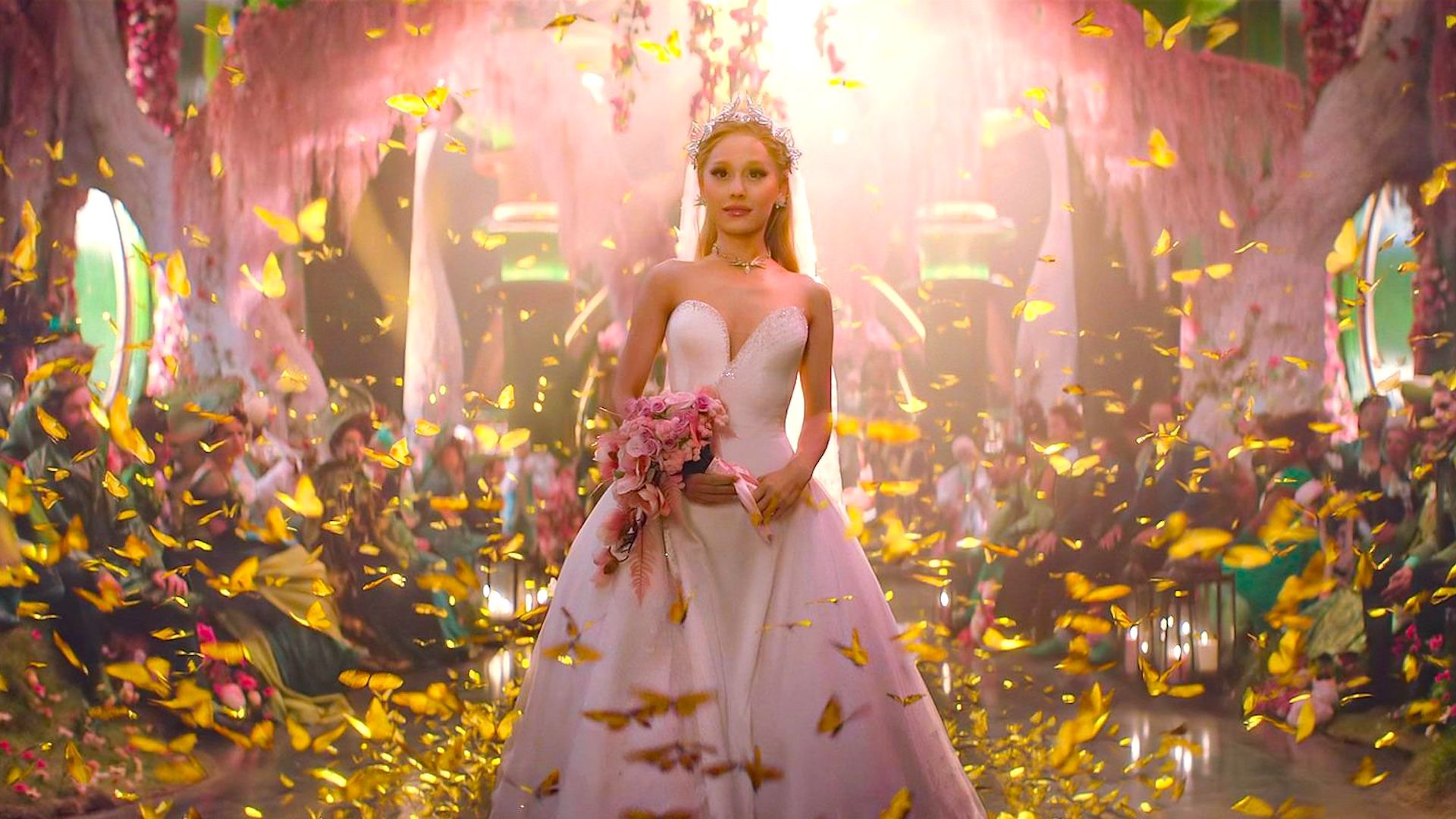
Universal Pictures
The stage musical Wicked doesn’t show Glinda and Fiyero getting married – in fact, Fiyero leaves to be with Elphaba long before they even approach that point. The wedding actually begins in the song “For Good,” but it’s interrupted by a shocking discovery: Elphaba finds the Wizard has secretly imprisoned animals. This fulfills a vision she had earlier in the show, revealing her old teacher, Dr. Dillamond, among those caged. When Elphaba frees the animals, they rush the wedding, stopping Glinda and Fiyero from getting married.
It’s incredibly painful for Glinda, but the scene where she sings “I’m Not That Girl” – a song originally sung by Elphaba – is especially heartbreaking because it’s set amongst the wreckage of her wedding. This powerfully shows that Fiyero truly loves Elphaba and has chosen to be with her, giving Glinda’s story much-needed emotional weight. For someone who’s always gotten what she wanted, this is her most devastating moment so far, and it’s the first sign that her carefully constructed view of the world is about to crumble.
Glinda Gets a New Song, Too –– But More Importantly, a Finite Turning Point
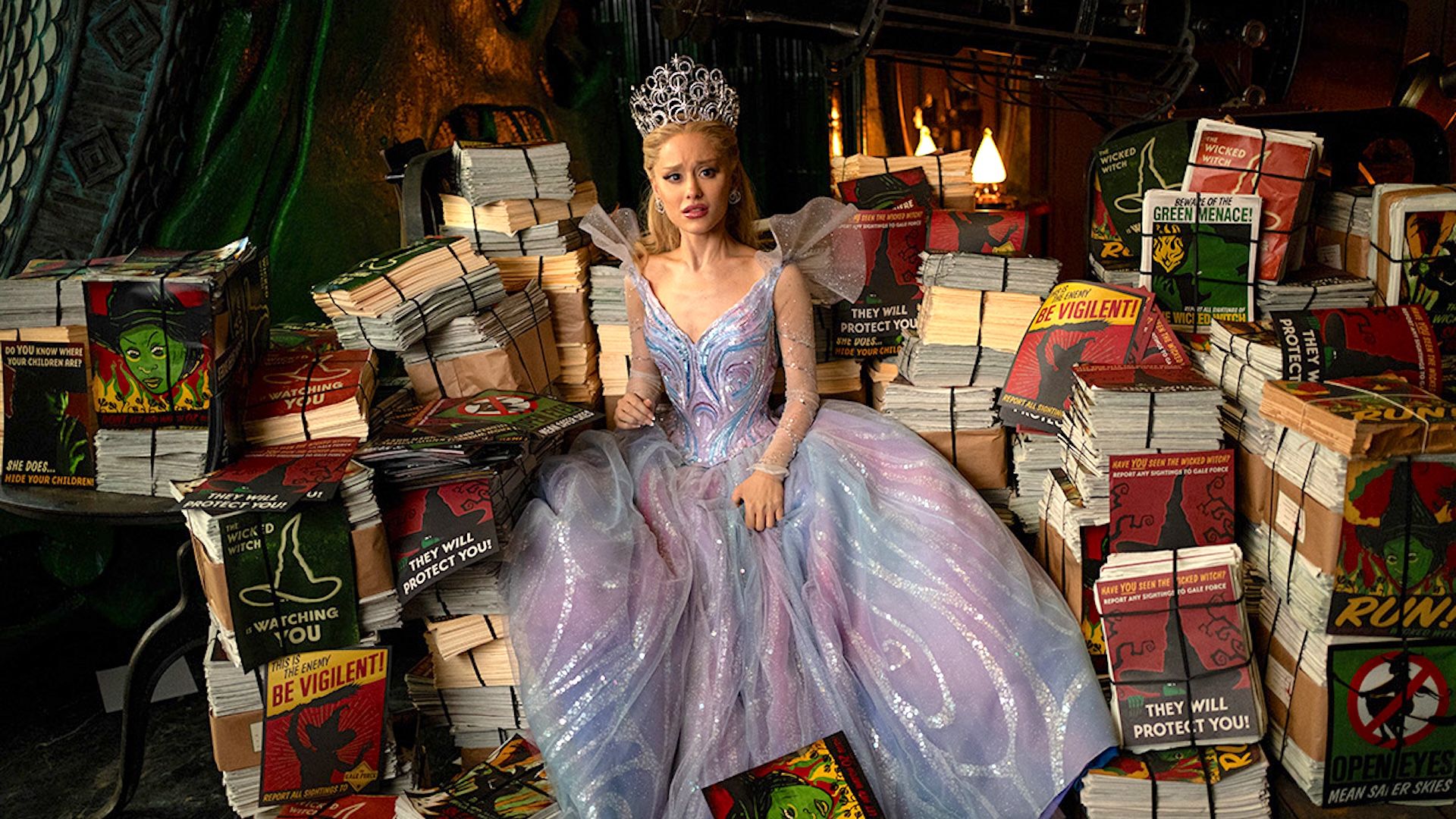
Universal Pictures
Whether you like it or not, Glinda’s new song, “The Girl in the Bubble,” is a significant moment for her character – a change that isn’t as clearly shown in the stage version. Having always lived a sheltered and privileged life – both literally traveling in a bubble and figuratively protected from the real world – Glinda realizes her own limitations. This realization empowers her to reject her comfortable life, abandon the Wizard and his evil plans, and leave the Emerald City to support a friend in need.
Her change in behavior and perspective ultimately transforms her into the leader the people of Oz require—one who is fair, acknowledges her flaws, and strives to embody the name “Glinda the Good.” While the musical’s nearly three-hour length doesn’t fully allow for this development as the second act concludes, showing Glinda’s genuine personal growth in the movie would give her character more depth and make the following events more impactful.
Glinda Invites the Animals Back Into Ozian Society
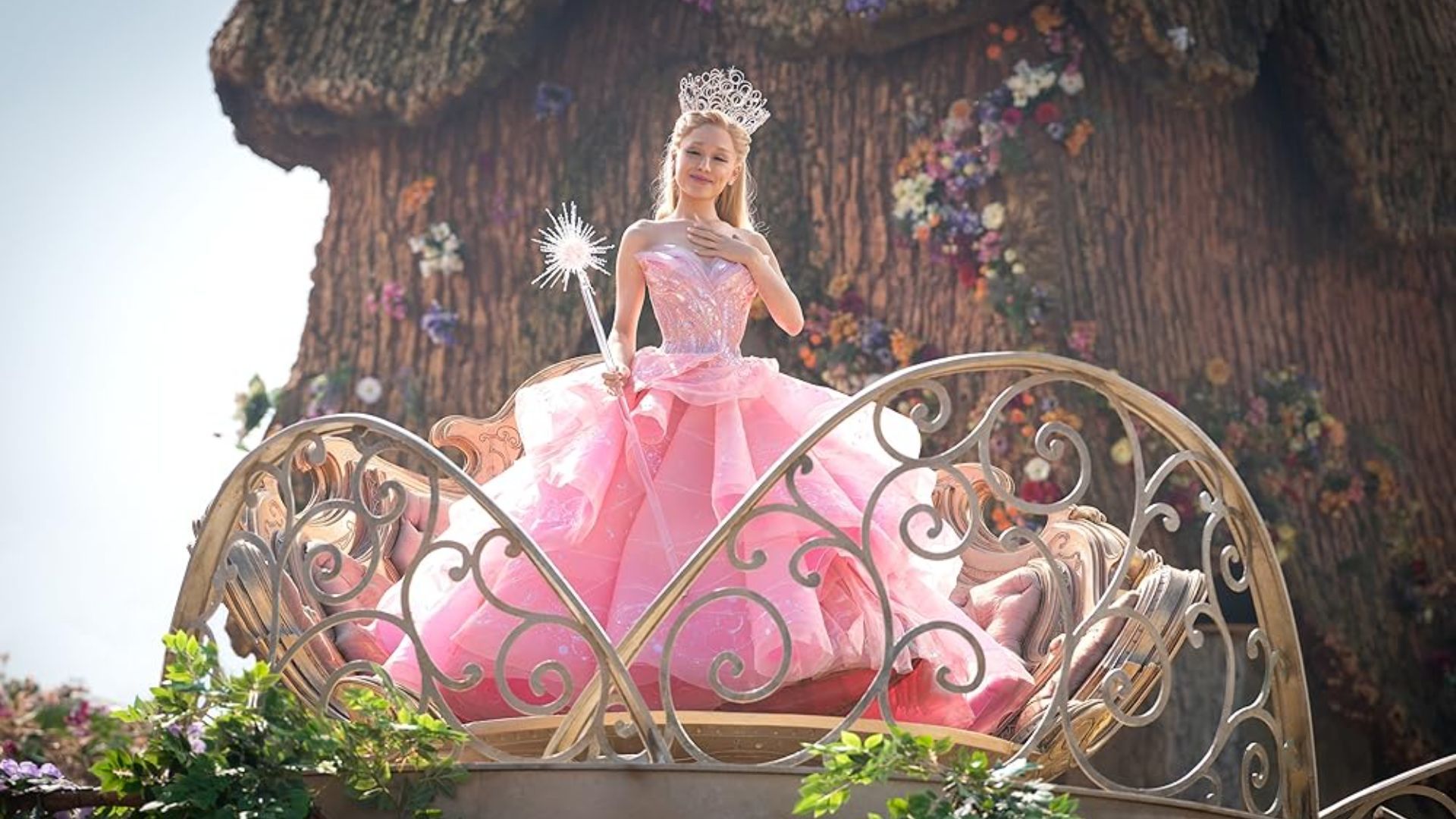
Universal Pictures
The musical touches on animal oppression, mainly through the character of Dr. Dillamond, but it’s a more significant theme in both Wicked: Part One and For Good. At the end of For Good, Glinda recounts her friendship with Elphaba and then invites the animals who were previously excluded to rejoin Ozian society. They appear on stage with the human citizens, visually representing a return to normalcy – something that doesn’t happen in the original stage production, which features only a few animal characters like Dr. Dillamond, the flying monkeys, and the Cowardly Lion. This addition provides a satisfying conclusion to the story’s animal-related themes.
Dr. Dillamond Returns, But One Question Remains
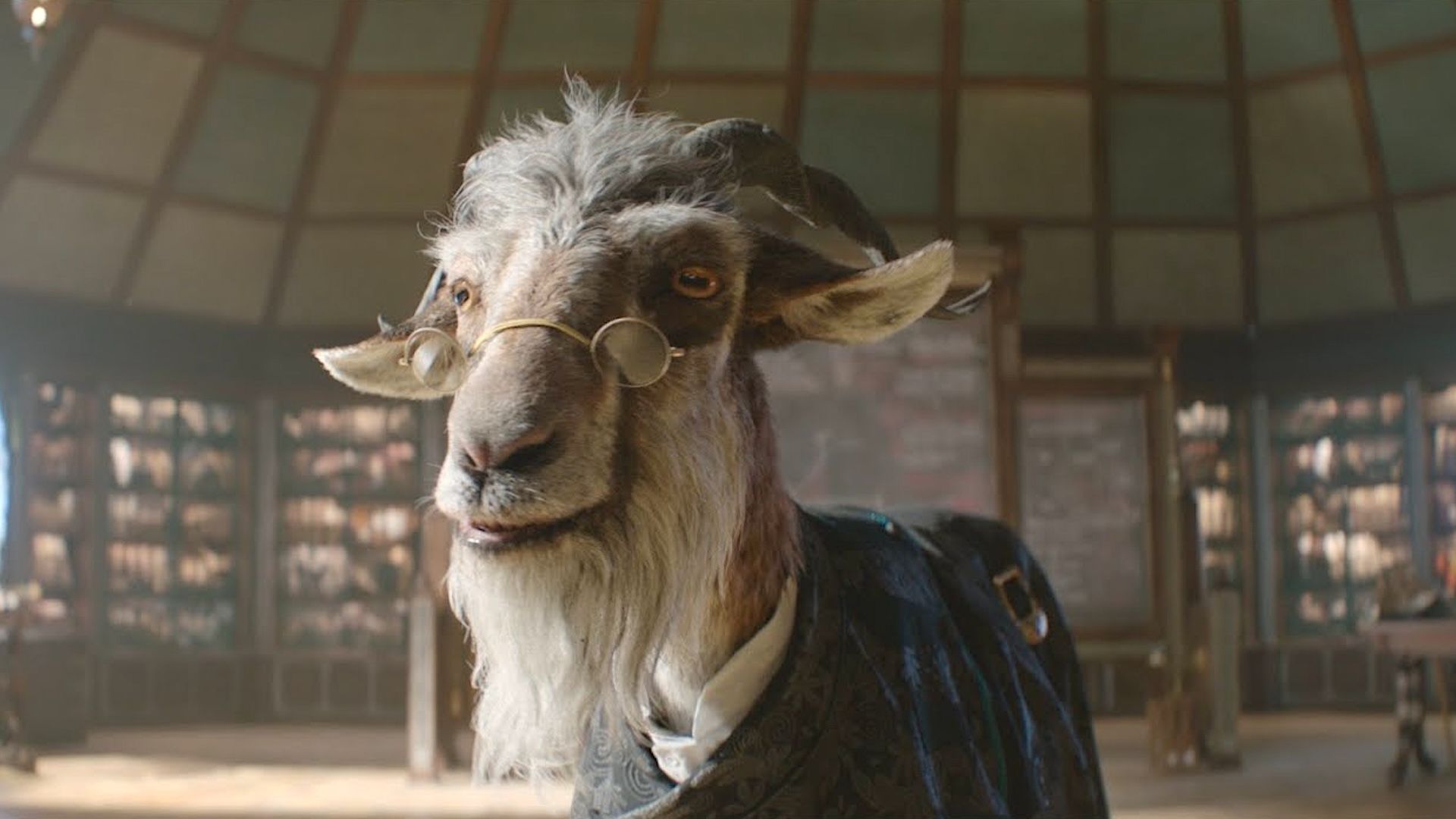
Universal Pictures
The movie not only welcomes the animals back into the community, but also surprisingly brings back Dr. Dillamond at the end. This is a nice touch for fans, as the original musical never revealed if Dillamond returned after losing his voice. While he appears as a free goat, the question of whether he can speak again remains unanswered. The film doesn’t provide a definitive answer, but it hints that a potential third movie could explore this further.
The Grimmerie Opens for Glinda
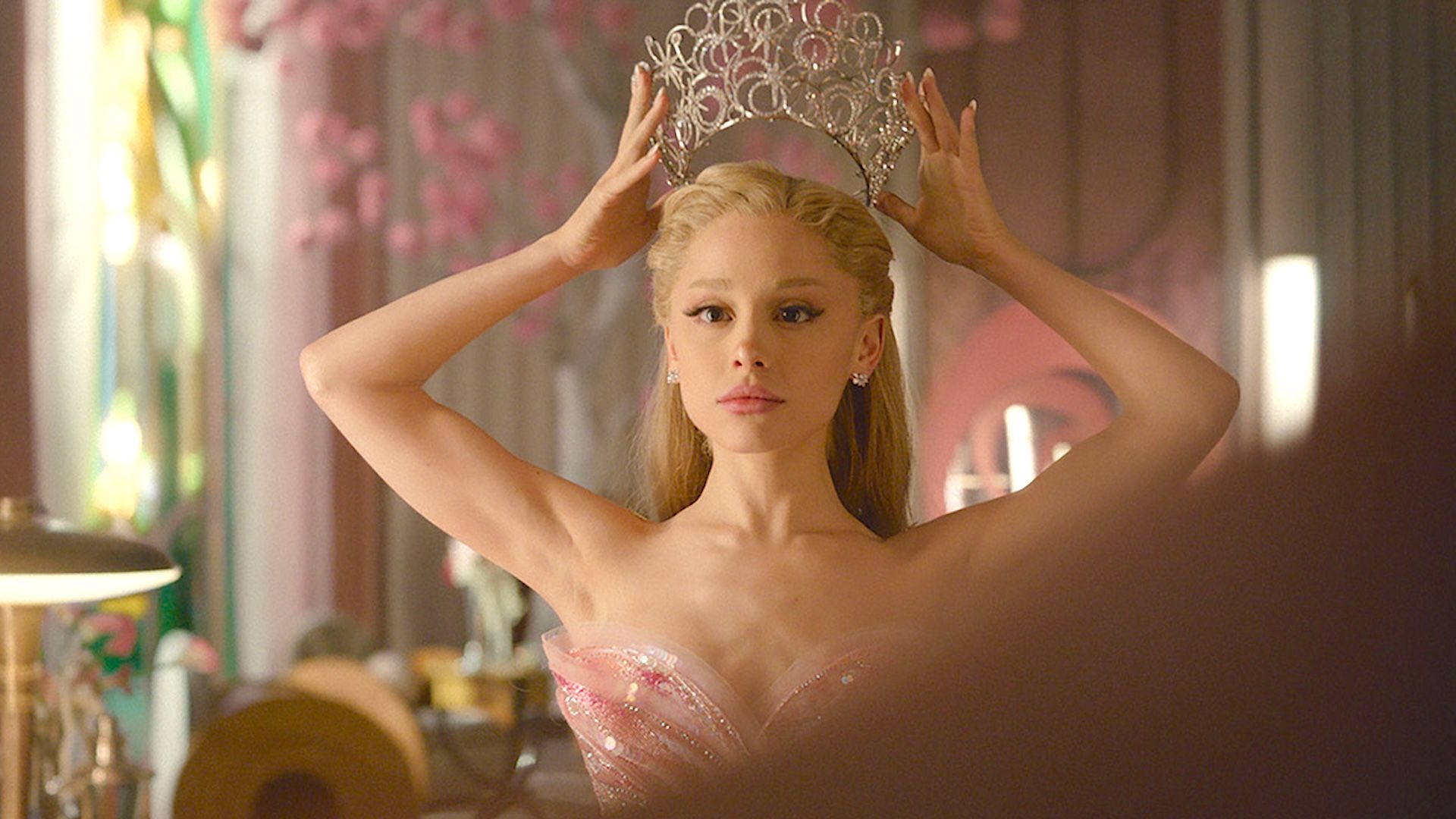
Universal Pictures
One of the biggest changes in the movie For Good happens at the very end. When Glinda goes back to the tower where Elphaba famously flew, the Grimmerie – a powerful spellbook – unexpectedly opens for her. This doesn’t happen in the stage version, where Glinda receives the book but it never shows any power. In the movie, the book opening suggests either that Glinda has become worthy of magic through her own goodness, or that Elphaba is still alive and sending a signal. Because the film doesn’t give a clear answer, both possibilities are left open, completely changing the meaning of the ending compared to the musical.
As a fan, I was really moved by Glinda’s arc in the movie! Seeing her take on the Grimmerie felt so right, especially because it left her believing Elphaba and Fiyero were gone – mirroring the stage show’s heartbreaking moment. But beyond that sadness, it showed how much she’s really changed throughout both films, from that sweet little girl in the flashback to the powerful leader she becomes. It’s amazing to see her finally get magic, but what’s even better is that she’s using it for all the right reasons now. Remember her duet with Elphaba? She promised she was changed ‘for good,’ and now she can actually use that magic to make Oz a better place. Honestly, this change from the musical gave me such a happier ending. It leaves a glimmer of hope that Glinda and Elphaba might one day reunite, turning what could have been a total tragedy into a story full of possibility.
Read More
- Best Controller Settings for ARC Raiders
- The Best Members of the Flash Family
- Every Targaryen Death in Game of Thrones, House of the Dragon & AKOTSK, Ranked
- Battlefield 6 Season 2 Update Is Live, Here Are the Full Patch Notes
- The Pitt Season 2, Episode 7 Recap: Abbot’s Return To PTMC Shakes Things Up
- Where Winds Meet: How To Defeat Shadow Puppeteer (Boss Guide)
- Dan Da Dan Chapter 226 Release Date & Where to Read
- Auto 9 Upgrade Guide RoboCop Unfinished Business Chips & Boards Guide
- 4 TV Shows To Watch While You Wait for Wednesday Season 3
- Duffer Brothers Discuss ‘Stranger Things’ Season 1 Vecna Theory
2025-11-25 01:24